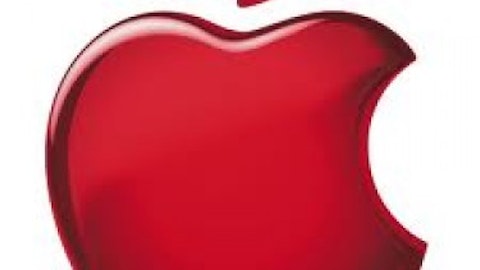For the company’s revenues to return to what they were in 2012, the company would have to double its sales from $6.6 billion to $13.8 billion. The likelihood of that happening is slim, even with a 50% increase in advertising spending.
The company is cutting costs to remain profitable, and in technology that’s like saying “we’re fending off the zombies by throwing one of the survivors into the pit so the rest of us can buy a little more time.”
What to invest in
Google is a terrific start. The company is heavily diversified: even if Motorola Mobility doesn’t become a smash-hit, it wouldn’t hurt Google much, as search advertising and web-based advertising continue to grow in the mid-teens. The company’s revenues from the Google Play store are likely to improve even further and catch up to Apple’s app store in the coming years. Giving Google several billion in high gross margin profit to cash in on, this seems far more reliable than waiting around for BlackBerry services to take off. Investors are banking on BlackBerry’s services becoming cross-platform compatible, but it just doesn’t compute financially as being a scalable business opportunity that represents any substantiating upside worth speculating on today.
Microsoft is another heavily diversified technology entity, even with the decline of the desktop computer. The company is hoping to make up for it through Windows 8 license sales through tablets. The company is well on track to winning the heart of consumers, as using a Windows product still feels familiar even with the changes from Windows 7 to Windows 8. The engineers over at Windows 8 have built an impressive computing experience that will give users a standardized experience across all computing form factors (tablet, phone, desktop, and laptop).
Microsoft’s consumer electronics division grew by 56% year-over-year in the first quarter, and with the launch of Xbox One, this rate of growth will improve even further. Skype is another bit of fantastic news as the number of Skype calls have grown by 56% year-over-year. The growth in consumer electronics and Skype calls is likely to continue.
Apple remains a compelling investment opportunity. The company plans to expand internationally and has increased its Apple store foot print around the world. Finally, there are rumored plans to sell devices at a cheaper price alongside the competition. The company is projected to grow its earnings by 20.88% on average over the next 5-years.
Conclusion
BlackBerry can cut some expenses to remain solvent over the short-term, but over the long-term BlackBerry needs to gain back some lost market share. BlackBerry’s business is too dependent on the success of its handsets. If BlackBerry misses earnings expectations for the full-year, the stock could fall drastically.
Alexander Cho has no position in any stocks mentioned. The Motley Fool recommends Apple and Google. The Motley Fool owns shares of Apple, Google, and Microsoft.
The article I Am Not Sold On BlackBerry’s Hype: Here Is Why originally appeared on Fool.com and is written by Alexander Cho.
Alexander is a member of The Motley Fool Blog Network — entries represent the personal opinion of the blogger and are not formally edited.
Copyright © 1995 – 2013 The Motley Fool, LLC. All rights reserved. The Motley Fool has a disclosure policy.





